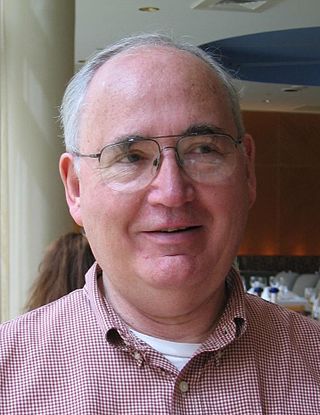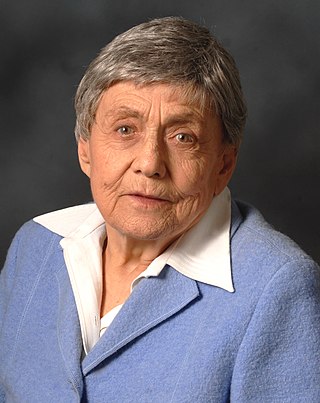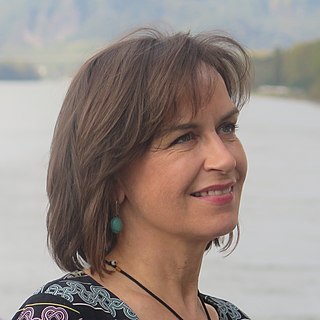Terence Parsons | |
|---|---|
| Born | Terence Dwight Parsons 1939 |
| Died | 2022 |
| Education | Stanford University (Ph.D., 1966) |
| Era | Contemporary philosophy |
| Region | Western philosophy |
| School | Analytic philosophy |
| Thesis | The Elimination of Individual Concepts (1966) |
| Doctoral advisor | Jaakko Hintikka |
| Doctoral students | Edward N. Zalta Jim Waldo |
Main interests | Metaphysics |
Notable ideas | Nonexistent objects Dual property strategy |
Influences | |
Terence Dwight Parsons (1939-2022) [1] was an American philosopher, specializing in philosophy of language and metaphysics. He was emeritus professor of philosophy at UCLA.
Parsons was born in Endicott, New York and graduated from the University of Rochester with a BA in physics. He received his PhD from Stanford University in 1966. He was a full-time faculty member at the University of Illinois at Chicago from 1965 to 1972, at the University of Massachusetts at Amherst from 1972 to 1979, at the University of California at Irvine from 1979 to 2000, and at the University of California at Los Angeles from 2000 to 2012. [2] In 2007, he was elected to the American Academy of Arts and Sciences. [3]
Parsons worked on the semantics of natural language to develop theories of truth and meaning for natural language similar to those devised for artificial languages by philosophical logicians. [4] Heavily influenced by Alexius Meinong, he wrote Nonexistent Objects (1980), which dealt with possible world theory in order to defend the reality of nonexistent objects.

Dana Stewart Scott is an American logician who is the emeritus Hillman University Professor of Computer Science, Philosophy, and Mathematical Logic at Carnegie Mellon University; he is now retired and lives in Berkeley, California. His work on automata theory earned him the Turing Award in 1976, while his collaborative work with Christopher Strachey in the 1970s laid the foundations of modern approaches to the semantics of programming languages. He has worked also on modal logic, topology, and category theory.

Ruth Barcan Marcus was an American academic philosopher and logician best known for her work in modal and philosophical logic. She developed the first formal systems of quantified modal logic and in so doing introduced the schema or principle known as the Barcan formula. Marcus, who originally published as Ruth C. Barcan, was, as Don Garrett notes "one of the twentieth century's most important and influential philosopher-logicians". Timothy Williamson, in a 2008 celebration of Marcus' long career, states that many of her "main ideas are not just original, and clever, and beautiful, and fascinating, and influential, and way ahead of their time, but actually – I believe – true".

David Kellogg Lewis was an American philosopher who is widely regarded as one of the most important philosophers of the 20th century. Lewis taught briefly at UCLA and then at Princeton University from 1970 until his death. He is closely associated with Australia, whose philosophical community he visited almost annually for more than 30 years.

Alexius Meinong Ritter von Handschuchsheim was an Austrian philosopher, a realist known for his unique ontology. He also made contributions to philosophy of mind and theory of value.
Richard Sylvan was a New Zealand–born philosopher, logician, and environmentalist.
A semantic theory of truth is a theory of truth in the philosophy of language which holds that truth is a property of sentences.

Richard Merritt Montague was an American mathematician and philosopher who made contributions to mathematical logic and the philosophy of language. He is known for proposing Montague grammar to formalize the semantics of natural language. As a student of Alfred Tarski, he also contributed early developments to axiomatic set theory (ZFC). For the latter half of his life, he was a professor at the University of California, Los Angeles until his early death, believed to be a homicide, at age 40.
Bastiaan Cornelis van Fraassen is a Dutch-American philosopher noted for his contributions to philosophy of science, epistemology and formal logic. He is a Distinguished Professor of Philosophy at San Francisco State University and the McCosh Professor of Philosophy Emeritus at Princeton University.
David Benjamin Kaplan is an American philosopher. He is the Hans Reichenbach Professor of Scientific Philosophy at the UCLA Department of Philosophy. His philosophical work focuses on the philosophy of language, logic, metaphysics, epistemology and the philosophy of Frege and Russell. He is best known for his work on demonstratives, propositions, and reference in intensional contexts. He was elected a Fellow of the American Academy of Arts & Sciences in 1983 and a Corresponding Fellow of the British Academy in 2007.
A free logic is a logic with fewer existential presuppositions than classical logic. Free logics may allow for terms that do not denote any object. Free logics may also allow models that have an empty domain. A free logic with the latter property is an inclusive logic.

John Richard Perry is Henry Waldgrave Stuart Professor of Philosophy Emeritus at Stanford University and Distinguished Professor of Philosophy Emeritus at the University of California, Riverside. He has made significant contributions to philosophy in the fields of philosophy of language, metaphysics, and philosophy of mind. He is known primarily for his work on situation semantics, reflexivity, indexicality, personal identity, and self-knowledge.
Kit Fine is a British philosopher, currently university professor and Silver Professor of Philosophy and Mathematics at New York University. Prior to joining the philosophy department of NYU in 1997, he taught at the University of Edinburgh, University of California, Irvine, University of Michigan and UCLA. The author of several books and dozens of articles in international academic journals, he has made notable contributions to the fields of philosophical logic, metaphysics, and the philosophy of language and also has written on ancient philosophy, in particular on Aristotle's account of logic and modality.
Supposition theory was a branch of medieval logic that was probably aimed at giving accounts of issues similar to modern accounts of reference, plurality, tense, and modality, within an Aristotelian context. Philosophers such as John Buridan, William of Ockham, William of Sherwood, Walter Burley, Albert of Saxony, and Peter of Spain were its principal developers. By the 14th century it seems to have drifted into at least two fairly distinct theories, the theory of "supposition proper", which included an "ampliation" and is much like a theory of reference, and the theory of "modes of supposition" whose intended function is not clear.

In analytic philosophy, philosophy of language investigates the nature of language and the relations between language, language users, and the world. Investigations may include inquiry into the nature of meaning, intentionality, reference, the constitution of sentences, concepts, learning, and thought.
In metaphysics and ontology, Austrian philosopher Alexius Meinong advanced nonexistent objects in the 19th and 20th century within a "theory of objects". He was interested in intentional states which are directed at nonexistent objects. Starting with the "principle of intentionality", mental phenomena are intentionally directed towards an object. People may imagine, desire or fear something that does not exist. Other philosophers concluded that intentionality is not a real relation and therefore does not require the existence of an object, while Meinong concluded there is an object for every mental state whatsoever—if not an existent then at least a nonexistent one.
Héctor-Neri Castañeda was a Guatemalan-American philosopher and founder of the journal Noûs.
Donkey sentences are sentences that contain a pronoun with clear meaning but whose syntactical role in the sentence poses challenges to grammarians. Such sentences defy straightforward attempts to generate their formal language equivalents. The difficulty is with understanding how English speakers parse such sentences.

Johan Anthony Willem "Hans" Kamp is a Dutch philosopher and linguist, responsible for introducing discourse representation theory (DRT) in 1981.
Michael Glanzberg is an American analytic philosopher specializing in philosophy of language and philosophical logic who is currently affiliated with Rutgers University. He received his PhD in philosophy from Harvard University, where Charles Parsons and Warren Goldfarb supervised his dissertation. Glanzberg has previously held faculty positions at Northwestern University, University of California, Davis, University of Toronto, and MIT. Often working at the intersection of logic and the philosophy of language, Glanzberg is recognized for his work on quantification, paradox, semantics, theories of truth, and the role of context in various linguistic settings. He frequently collaborates with Jc Beall.

Friederike Moltmann is a linguist and philosopher. She has done pioneering work at the intersection of philosophy and linguistics, especially on the interface between metaphysics and natural language semantics, but also on the interface between philosophy of mind and mathematics. She is an important proponent of natural language ontology. She is currently Research Director at the French National Centre for Scientific Research (CNRS) in Paris.